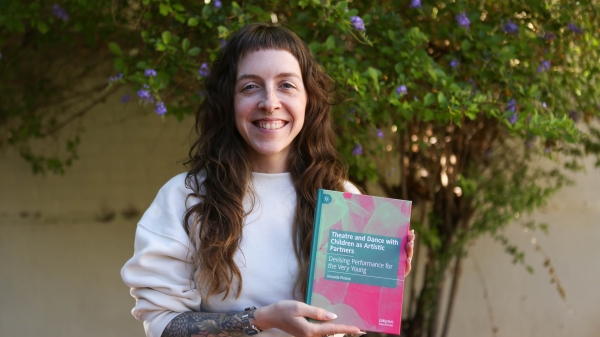ASU history professor awarded social science fellowship

Professor of history Aaron Moore
Professor of history Aaron Moore was recently awarded the “Fellowship for Advanced Social Science Research on Japan” sponsored by the National Endowment for the Humanities and the Japan-U.S. Friendship Commission.
The project, “Engineering Asian Development: The Cold War and Japan's Post-Colonial Power in Asia,” will examine the history of Japan's overseas development system in Asia from its origins in Japan's colonial rule over much of Asia before 1945 to its rise as the world's leading aid donor by the Cold War's end in 1989.
“This award enables me to conduct research that places Japan in a transnational context through the lens of overseas development and the global Cold War,” Moore said. “It will not only enable me to conduct interviews but also perhaps make site visits to completed projects in Southeast and East Asia, and do some archival research in the US. Moreover, by examining private company records, it will help illuminate the history of overseas development from the lesser-known perspective of development consultants and private business rather than government or international agencies.”
In addition, his research will look at the Cold War from a perspective few historians take.
“Finally, this award allows me to analyze the history of the global Cold War from the standpoint of an important actor in Asia — Japan — rather than the usual perspective of the US vs. the USSR and their military/ideological conflict throughout the world.”
With this fellowship, Moore will address issues in two areas: the history of development and Cold War History. Development and poverty alleviation are still major global issues, Moore said.
He aims to answer questions such as: “What role did Japan play in this economic Cold War as America’s key ally in Asia?” and “How did Japanese development practitioners navigate issues in the developing world such as nation-building, ethnic and cultural diversity, civil war, ideological conflict, and dictatorship?” which tend to complicate the history of the Cold War. A history which mostly focuses on the conflict in Europe and sees Asia merely as a place where superpower designs and ambitions played out.
Moore will conduct final stage research in Japan for four months at private company archives and interview the retired employees and development practitioners of multiple organizations.
“These Japanese companies supervised huge multi-purpose dam projects throughout Asia during the Cold War, and therefore, their activities provide insight into how Japan’s overseas development aid system worked. It also illuminates Japan’s role in the economic Cold War,” Moore said.
The remainder of the fellowship will be spent writing up the research into a monograph tentatively titled, "Engineering Growth: Infrastructures of Planning in Japanese Overseas Development," to be submitted to University of Hawaii Press.
Moore’s fellowship begins in September and will end in July 2018.
More Arts, humanities and education

Exhibit to feature artwork inspired by oral histories from Arizona's oldest botanical garden
Though it is Arizona's largest botanical garden and has been an established touchstone of the community for more than 100 years,…

ASU center to host Spike Lee for Delivering Democracy 2025 program
The Center for the Study of Race and Democracy at Arizona State University will host Academy Award-winning filmmaker and cultural…

ASU professor explores theater, dance for young children in new book
Arizona State University Assistant Professor Amanda Pintore believes in the artistic capacity of very young children. She's…